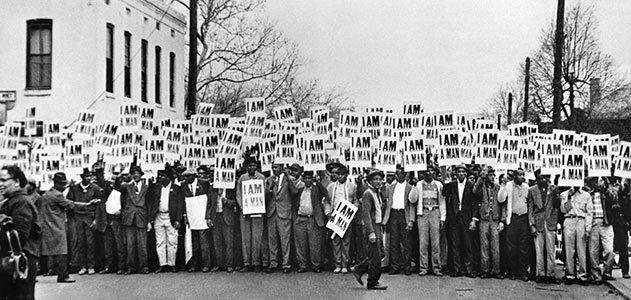
The fact that February is Black History Month has come to be a given today, but the fight for recognition of the contributions that black Americans have made throughout history started long ago.
Breakthroughs and Accomplishments
Even though Black History Month officially began nationally with a 1986 Public Law passed by Congress, the fight for a celebration of black history started long before that with a tenacious and dedicated scholar and historian named Carter Woodson. Known as the “Father of Black History,” Dr. Carter G. Woodson was the second African American to earn his doctorate from prestigious Harvard University and was an important driving force in the creation of Black History Month.
Woodson dedicated his life to the field of African American history, and founded the Association for the Study of Negro Life and History (now, the ASALH) in Chicago in 1915. After establishing the ASNLH in 1915, Woodson began the publication of The Journal of Negro History in 1916 and followed that with his 1937 first edition of The Negro History Bulletin. These journals helped spread knowledge of black history across the academic world. More and more people came to realize both the contributions of black Americans and the importance of acknowledging those contributions.
Black History Week Begins
In 1926, Woodson’s groundbreaking group organized the very first Negro History Week during the second week of February, in part because the birthdays of both Abraham Lincoln (February 12) and Frederick Douglass (recorded as February 14) landed in that month. This act by Woodson sparked the start of our nation’s road to Black History Month when people across the nation pause to focus their attention on the important recognition and study of black history.
In the 1940s and 50s, more and more scholars and influential people began to get involved with the promotion and study of African American heritage and accomplishment. College campuses across the country started shifting their attention to the real contributions African Americans had made to our nation, and celebrating Black History week on those campuses spread.
Knowledge Spreads
As black history made its way into academics, more and more people recognized the impact different African Americans had made on our nation. Frederick Douglass, Sojourner Truth, Harriet Tubman, W.E.B. DuBois, Langston Hughes: These are all well-known names today because of the work done to broaden our minds with an awareness and appreciation for African American history. As more and more people gained an interest in uncovering the histories that were previously hidden, the movement toward Black History Month spread.
The Spread Black History Month
The first Black History Month was celebrated by a small group of students in 1970 at Kent State University. However, this idea of moving from a week to a month of celebration took root, and pretty soon, colleges across the nation were celebrating black history for a month. In fact, in 1976, President Gerald Ford commented about the celebrations and chance to learn more when he said that Americans should grab at the “opportunity to honor the too-often neglected accomplishments of black Americans in every area of endeavor throughout our history.”
African Americans In The Spotlight
What changed between the first African American History week in the early 19002 and the spread and acceptance of Black History Month in the 70s and 80s? The spotlight was finally shining on civil rights because of the work of important leaders like Martin Luther King, Jr. But he wasn’t alone in the fight to shine a spotlight on inequalities, and many other African American leaders emerged.
Shirley Chisholm was the first black woman to be elected to Congress, serving from 1969 to 1983. Representing a district in New York, she later brought black accomplishment into the spotlight through her bid for the 1972 Democratic Party nomination.
King was one of the most influential leaders of the Civil Rights Movement, but he was also surrounded by important supportive leaders along the way. Baynard Rustin was the leader who took care of the main organizing and strategizing for the March on Washington in 1963, and Annie Lee Cooper was one of the most vocal and active leaders of the Selma Voting Rights Movement in 1965. Meanwhile, Dorothy Height was a leader in the Young Women’s Christian Association who fought for the advancement of women’s rights.
Not only were African Americans making strides toward civil rights equality, but they were also achieving outstanding accomplishments in the broader culture. Betsy Coleman became recognized at the first license black pilot in the world during the 1920s, and Jesse Owens set a world record at the 1936 Olympics in Berlin. Writers like Gwendolyn Brooks, Maya Angelou, and James Baldwin brought the beauty and struggle of African Americans to pages read across the nation while Ella Fitzgerald, Big Joe Turner, Sam Cooke, and Nina Simone brought the spotlight to African American musicians played through radios around the country.
Honoring the Past
Though a month alone can’t express or contain the contributions that African Americans have made throughout the history of the United States, we honor those individuals who have contributed to breaking stereotypes and making positive contributions in culture, science, politics toward the formation of the beautifully diverse nation we know today.
Washington Technical Institute
Washington Technical Institute’s fully online certificates can be completed in a matter of months, with daily or bi-weekly start dates. Such flexible start dates make these programs unique and much more accessible for our students. Most of our certificates can be earned as a self-paced program, meaning that you can work at your own pace to complete your work, even finishing early if you have the time and motivation to do so. An additional benefit of WTI’s programs is that we offer affordable pricing and monthly payments to help our students leave school without debt.
Although our goal is to help our students graduate their programs with little to no debt, we also recognize that some students might need to utilize a loan for their educational investment. We are excited to announce our partnerships with Meritize Financial Assistance, Climb Credit, or Ascent, student lending companies focused on financing career-building programs.
If you’re ready to enroll and start working on a plan for the personal and professional benefit of professional development, you can register for your program online through our website. Still have questions about our programs? Feel free to call us at 800-371-5581 or text us at 952-465-3702 to speak with an admissions specialist.


